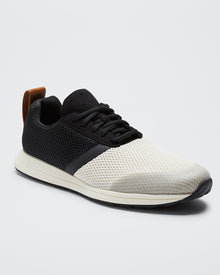Fighter Fuel: How Incorporating More Plants Can Help You Perform Your Best
With an increase in the popularity of plant-based, vegan and vegetarian diets, it is important to take a look at the implications for high-performance athletes. There is much debate over the sustainability and safety of high-performance vegan athletes but with the undeniable success of vegan athletes like Rich Roll, Venus Williams, and Nate Diaz, it is worth investigating whether adopting a plant-based lifestyle might help you perform your best.
Adopting a plant-based or mostly plant-based diet is not only associated with 100% chance of being asked, "but where do you get your protein?" but also with a decrease in heart disease, a decrease in LDL, lower blood pressure, lower BMI, a lower risk for type 2 diabetes and decreased instance of cancers.
An athlete might choose to adopt a plant-based diet for its performance-enhancing abilities. For years, vegan athletes have claimed that the diet allows them to recover faster, feel lighter, and have more mental clarity and there may be some solid evidence to support this. For example, a plant-based diet is also low in inflammation-producing Omega 6 while high in key nutrients (Craig, 2009), creating an optimal internal environment for performance and recovery. A plant based diet is also associated with improved immunocompetence, allowing an athlete to miss fewer training days due to illness.
Downfalls of a Plant-Based diet:
While there are certainly many benefits, there are several deficiencies that are common among those who choose to adopt a vegan lifestyle. Iron and B12 are among the recommended supplements for those who avoid animal protein. Recommended supplementation includes Omega 3, Zinc, Iodine, Calcium, and Vitamin D. (Craig 2009)
This low absorption of nutrients may be due to the fact that plant-based foods tend to have lower digestibility of nutrients, especially foods like maize, oat, bean, pea and potato. However when these foods are freed from their anti-nutritional factors (like Phytic Acid in beans and seeds), they become purified plant proteins (pea protein concentrate, wheat gluten, etc) and demonstrate greater than 90% digestibility.

Plant-based for Athletes:
Choosing to eat a plant-based diet can be excellent for athletes, but only if it focuses on micronutrient-rich, whole plant foods while avoiding deficiencies (Craig, 2009). And to address the age-old protein conundrum: as long as you eat ENOUGH protein, there is no difference in lean muscle gain between a plant-based and omnivorous diet (Joy, 2013). As a rule of thumb, an athlete should aim to get 12-15% of his or her calories from protein. In addition to ensuring high-quality plant-based protein, it is important to supplement with Essential Amino Acids (i.e. BCAAs, or the pink water in those shaker cups that bodybuilders bring to the gym)
Nutritarian Approach:
What is a "Nutritarian"? A nutritarian is an individual who follows an eating style high in nutrients. A nutritarian may be vegan or they may include limited animal protein. This lifestyle is defined by food that is high in micronutrients, unrefined plant food, vegetables, fruits, nuts, seeds and beans. Nutritarians avoid nutrient-depleted foods like refined grains, sugars, sweeteners, and added oils.

After having adopted a vegan lifestyle for several years, I personally choose to take a nutritarian approach. I love the decreased inflammation, decreased environmental impact and increased recovery time I experience by adopting a plant-based lifestyle, but found supplementing with powders and supplements burdensome and not in line with my whole-foods approach to nutrition. I eat plant-based 95% of the time and eat high-quality animal sources of protein on occasion. I have more mental clarity, better exercise performance, and better digestion (and skin!). It is also nice to know that my carbon footprint is a little smaller due to something as simple as my food choices.
Here's an example of a plant-based menu that is nourishing and excellent for a high-performance athlete like a boxer, weight-lifter, or runner. Also, very delicious.
Sample Daily Menu:
2000-3600 kcal depending on portion sizes; 80-120g protein

Breakfast
Smoothie: Raw Kale/Collards, banana, flaxseed, blueberries, pumpkin seeds, hemp seeds

Lunch:
Mixed Greens and Baked Tofu/Seitan and lentils with avocado, carrots and a dressing made from tomato, almond butter, garlic, onion and vinegar
Snack:
sweet potato slices topped with cashew butter and cinnamon
Dinner:
Baked butternut squash with steamed broccoli, bell peppers, kale, mushrooms, peas, and onions in a cashew and white bean cream sauce. Topped with sesame seeds and hemp seeds.

Liz Letchford, MS, ATC, is a personal trainer in San Francisco, California. To learn more about her, visit her website www.lizletchford.com.
REFERENCES:
Craig WJ, Mangels AR, American Dietetic Association. Position of the American Dietetic Association: vegetarian diets. J Am Diet Assoc. 2009 Jul;109(7):1266-82.










